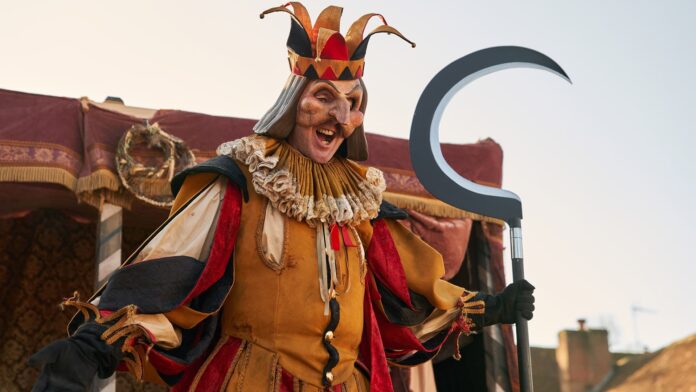
ENGLISH folk horror Lord of Misrule is one that should appeal to fans of The Wicker Man and Midsommar. You know, films with lots of pagan and supernatural goings on in rural and natural settings.
Directed by William Brent Bell, the man responsible for The Boy and Orphan: First Kill, it is set in a quaint English village that gives off strange Emmerdale vibes.
Now streaming on Shudder, it tells the story of new vicar Rebecca Holland (Tuppence Middleton) who has recently taken over the parish church. Rebecca, together with husband Henry (Matt Stokoe) and daughter Grace (Evie Templeton), is still settling into country life as the excitement grows for the annual winter festival.
With only a handful of locals turning up to the new pastor’s Sunday services, the ungodly harvest event built around the ritualistic driving out of the spirit Gallowgog seems much more to their liking.

- External Walls: Up to €8,000 Grant
- Attic: Up to €1,500 Grant
- Cavity Walls: Up to €1,700 Grant
- Internal Dry Lining: Up to €4,500 Grant
When Rebecca’s young daughter goes missing at the winter festival, villagers and local police join in the desperate search. But, just as in Robin Hardy’s folk horror classic The Wicker Man, a game of cat and mouse ensues as she edges closer to the truth. The more she searches, the more secrets that emerge from the sleepy hamlet’s dark past.
Clinging onto hope and her faith, Rebecca turns to the villagers to join her in prayer to guide Grace back to them. However, one true believer of Gallowgog’s power stands in her way. The insensitive and cold-hearted Jocelyn Abney (Ralph Ineson) insists repeatedly that “all is as was”.
Rebecca must now decide just how much she is willing to sacrifice to rescue her daughter from the grip of evil. With her flock now lost to her, she must face this malevolent spirit alone if Grace is to be saved.
Bell’s film is one with heaps of unfulfilled potential. Palpable atmosphere and compelling drama are often lost in a muddle of cliches and shiftless theatrics. Overall though, the absorbing twist at the end more than makes up for many of its inadequacies.
(3/5)

